Living a Life Beyond the Norm–Lessons Learned from the Levitical Priesthood
Living a Life Beyond the Norm--Lessons Learned from the Levitical Priesthood
Organizations establish standards by which its members’ job performances are judged. There are set standards and job performance levels that separate an average from an exceptional worker. A member’s job performance when compared to those standards may determine that member’s standing in the organization; advancement opportunities in that organization; and even the amount that member will be paid. Those members who find themselves rated as exceptional employees tend to be rewarded with higher responsibilities, privileges and salaries within the organization. Unlike any other human organization or activity, YHVH established the standards by which our performance will ultimately be judged by our Master, Yahoshua Messiah. Our positions and privileges in the Kingdom of YHVH will depend upon how we measure up to those basic, and most importantly, exceptional expectations. In this post, we focus on the exceptional life to be lived by disciples of Yahoshua, using the expectations that were modeled for us by our Master Yeshua and the expectations that were established for members of the Levitical Priesthood in Leviticus 21: 1-22:16. In so doing, the true disciple of Yahoshua HaMashiyach is expected to live a life beyond the norm.
YHVH’s Expectations Established
YHVH provided us the standards by which we are expected to live. Those expectations are encapsulated in His eternal Torah and through the teachings and example of Yahoshua Messiah. As with any human organization, there are basic standards and expectations, as well as exceptional standards and expectations. The basic standards YHVH established for day-to-day living are embedded in Torah–the first-five books of the Old Testament. The exceptional standards and expectations established by YHVH were delivered to and modeled for us by His Son, Yahoshua our Messiah. I believe we also see exceptional expectations and standards that were given by YHVH to the Levitical Priesthood. Those exceptional standards and expectations offer us, in a sense, a shadow picture of the exceptionally high standards that Yeshua requires of all of His disciples.
Levitical Priesthood Standards/Expectations Were Higher Than the Norm
One-fifth of Torah is dedicated to the rigorous, exceptional standards and expectations that YHVH established for the Levitical Priesthood. At the time these instructions were handed down to us, very little of those priestly expectations and requirements applied to the average Israelite. Those standards were established specifically for the Levitical Priesthood. The Levitical Priests were expected to meet, not just the basic, core, rote-mechanical standards and expectations of Torah that applied to every Israeli male. They were expected and required, in addition, to meet exacting, ritual-holiness-cleanliness standards that exceeded the universal standard, basic instructions of Torah. Failure to meet both the standard and exceptional standards and expectations disqualified a Levite from serving in the sanctuary and serving the nation.
Higher Standards and Expectations For Every Disciple of Yeshua
I contend that we who are Torah Observant Believers in Yahoshua Messiah are now, and in the future, expected to not only meet all applicable Torah instructions (i.e., commandments), but also every applicable aspect of Torah that is over and above each rote-mechanical aspect of Torah (e.g., not only are we to not commit adultery or fornication, but we are not to look upon another member of the opposite sex who is not our spouse in a lustful manner).
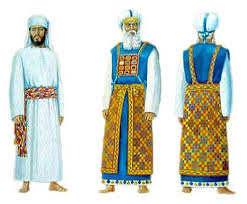
The expectations and standards set for a Levitical Priest was beyond the basic standards for men by Torah.
It is about living a life that is above and beyond the NORM. This is about living and exceptionally righteous life. I would submit to you that failure to meet both the basic and those exacting, exceptional standards and expectations will adversely affect our role and inclusion in the Kingdom of YHVH.
Torah Is NOT Just a Jewish Thing
Many outside of our Faith Community adamantly contend that Torah was created and implemented for the Jews. These maintain that the Jews failed to keep Torah and thus forfeited their opportunity for salvation and that Christians have replaced the Jews in God’s great plan of salvation for mankind. Is this an true line of thought and teaching? Well, when Torah was given to us during our sojourn in the Sinai Desert, and even after we entered the Land of Promise, the bible clearly indicates that all 12-tribes of Israel were subject to Torah. By the first half-of the 6th-century B.C., 10 of our 12-tribes had become scattered by the Assyrians leaving only the tribes of Judah and Levi. Today, the identities and locations of those scattered 10-tribes of Israel are lost to the memory of world history. Interestingly, during the time our Master, Yahoshua and His handpicked disciples walked, taught and preached on this earth, the identities and locations of those 10-tribes was well known to the Jews of the Ancient Near East (Matthew 10:6; 15:24; 9:36; Jeremiah 50:6). Scholars who have attempted to identify some of the lost “Sheep of Israel;” or rather the misnomer “Lost 10-Tribes of Israel,” have found archaeological evidence that is scattered throughout the eastern and western world that many of the scattered peoples have kept Torah to a lesser or fuller extent throughout the ages.
The Pharisaical religious establishment has successfully duped the world into thinking that Torah (and the Land of Promise) was given only to the Jewish nation. Christianity then took this Jewish-only mindset and understanding a few steps further by hijacking and corrupting the concept and doctrines of “grace.” Christianity teaches the “Law” was for those evil Jews who will suffer for their refusal to play by God’s rules, but we Christians are under grace and not required to keep one jot or tittle of the “Law.” By default, the Christian worldview has separated would-be disciples in Yeshua Messiah (thought of mainly as Gentiles) from their naturalized Israeli heritage and Faith that is based upon Torah. Therefore, the hijacked doctrine of grace has unceremoniously completely eliminated Torah as a life-expectation and requirement for any would-be disciple of Jesus Christ (i.e., Yeshua Messiah). This doctrine is not only false, it is also the vehicle by which countless well-intended, sincere, but grossly misinformed souls will NOT be admitted to the Kingdom of YHVH in the World Tomorrow.
None of this is to say, in the least, that a would-be disciple of Jesus Christ (i.e., Yeshua Messiah) receives admittance to the Kingdom of YHVH or eternal life by keeping Torah. To the contrary, eternal life and admittance into the Kingdom is a gift of YHVH that was won and will be delivered as a result of the atoning sacrifice of Yahoshua on the execution stake on that fateful Passover Day on or around 28 C.E. Nevertheless, for the true Disciple of Yeshua HaMashiyach, Torah stands as YHVH’s house rules that every disciple is expected to honor, keep and obey as applicable under the Renewed Covenant.
Torah Expectations and Requirements For Levitical Priests Were Over and Above The Basic Torah Instructions
Abba passed on to Moses (i.e., Moshe) and Aaron (i.e., Aharon) and Aaron’s posterity, the exceptional standards and expectations that would be required in order for the males in Aaron’s lineage to serve the nation of Israel. As we can see throughout the book (i.e., the Cepher) of Leviticus, these standards and expectations were often rigid and were overall, over and above the baseline instructions given for every Israeli male. It was these exceptional expectations and standards set the would-be Levitical Priest apart from the rest of the nation in the manner of:
- His conduct
- His behavior.
- His home life
- His diet
- His finances
- His cleanliness (both physically and ritually speaking)
- His service in the Sanctuary
- His service in the community
- His attire (i.e., his clothing)
- His reputation.
Things to Keep in Mind When Studying Leviticus
When reading through and studying Leviticus and the Levitical Priesthood, it is important to keep the following in mind:
- the Levitical Priesthood has passed away.
- As Torah Observant Believers in Yeshua Messiah, we are no longer under the Levitical Priesthood, but under the Melchizedekian Priesthood whose High Priest (i.e., Cohen Gadol) is our Master Yahoshua Messiah.
- “YHVH has sworn and will not change His mind, ‘You are a priest forever according to the order of Melchizedek'”(Psalm 110:4; cf. Hebrews 5:6; 6:20; 7:15-17).
- As a Torah Observant Believer in Yeshua Messiah, each of us is fully naturalized Israelite possessing all of the privileges and benefits afforded any true, Torah-keeping, naturally-born Israeli Disciple of Yeshua.
- As Torah Observant Believers in Yeshua Messiah, we have been commissioned to be a nation of priests unto YHVH (Revelation 1:6; 5:10; 20:6).
- Like the Levitical Priests of old, as Torah Observant Believers of Yahoshua Messiah, there are rigid, exacting standards and requirements that we are expected to meet and maintain. Those standards and expectations were enumerated, taught and modeled for us by our Master Yeshua.
- As Torah Observant Believers in Yeshua Messiah, we will be judged accordingly by Yahoshua based upon those standards and expectations.
- What good is studying this or any other similar portion of Torah addressing the Levitical Priests?
- Torah provides us an example (although a crude one) of heavenly things and of prophetic shadow pictures of good things to come. (cf. Hebrews 8:5; 10:1)
- We are NOT obliged to keep the instructions directed to the Levitical Priesthood (e.g., wearing priestly clothes; purification rituals; serving in a make-shift sanctuary; etc.).
- Since we are to serve as Priests of YHVH, under the leadership of Yeshua HaMashiyach, these instructions serve as a wonderful reminder of the high standards and expectations a would-be Priest of the Most High Elohim is required to meet and live out.
- Master established similarly established high standards and expectations for us, His Disciples. These standards rival the most exacting requirements of the Levitical Priesthood. THEY ARE NOT EASY.
- These standards and expectations are, in effect, the fullness of Torah, that we are expected to measure up to in our day-to-day lives and in our work for the Kingdom of YHVH. Unfortunately, most of the world will not meet those high standards and expectations. Case in point is the story of the Rich Young Man (Pharisee, found in Matthew 19:13-20:16; Mark 10:13-31; Luke 18:15-30. Here we see a level of commitment and responsibility established by Father and implemented by our Master that disqualifies most from entering the Kingdom and service of YHVH.
We Are A Nation of Priests
Yahoshua has made us to be a kingdom of priests to His Elohim and Father (Revelation 1:6; 5:10). As priests of the Most High, the examples given in Torah relating to the required ritual cleanliness of every Levitical Priests 24-hours a day, 7-days a week, should serve as a reminder to us of our Master’s expectations for us. When these expectations and requirements are understood through the doctrines and teachings of Yeshua our Messiah, we should come to realize how important our personal and spiritual cleanliness is to YHVH. Father requires that we be “holy as He is holy” (I Peter 1:15, 16). That requirement has not changed in the least, despite the Torah naysayers that teach a perverted grace doctrine that inputs upon a Christian believer perpetual cleanliness and holiness. What this perversion is actually saying to the world is that all you need to do to inherit eternal life and have a relationship with the Creator of the Universe is ask Jesus Christ into your heart. Upon asking Jesus Christ into one’s heart, then grace takes over and your eternal life ticket is punched. You can live anyway you choose to live because God’s grace inputs perpetual righteousness to us and we become “holy” by default, forever.
This perverted version of grace is so far from Truth that it’s not even funny. We are required to “be” holy–to live holy lives; to live a life that is beyond the norm of all humanity, or even Christianity for that matter. The Apostle Peter wrote:
Gird up the loins of your mind (Greek for mind is Anazunomi, which means to prepare one’s mind for action); be sober; and hope to the end for for the grace that is to be brought unto you at the revelation of Yeshua Messiah. As obedient children, not fashioning yourselves according to the former lusts in your ignorance, but as He which hath called you is holy, so be ye holy in all manner of conversation; because it is written: “Be ye holy; for I am holy” (I Peter 1:13-16; cf. Leviticus 20:7; KJV).
Thus, we are not to defile ourselves or become spiritually and physically tainted by the things of this world, which when given over to, serves to blunt our service and effectiveness as priests of YHVH. By default, then, we are to die to self (reference Romans 6:2, 11; 2 Timothy 2:11).
Like the Levitical Priests of old, the standards by which we are to live are higher than most people will ever aspire or conceive to meet. Those lofty, but doable standards and expectations, affect how we conduct every aspect of our lives:
- Our family, work, community and other personal relationships
- Our diets
- Our behavior and habits
- Our individual thoughts and feelings
- Our participation in modern life activities
- Our obedience to YHVH’s instructions (i.e., His Torah).
An entire book (i.e., cepher) of Torah was dedicated to instructions for the Levitical Priesthood. The requirement for exacting ritual purity and cleanliness in order for any priest to serve the nation in the community and in the sanctuary cannot be understated. YHVH requires, without exception, cleanliness and purity in order for any to worship and commune with Him. The priestly ritual instructions were primarily in place to allow the priests to serve in the sanctuary and in worship of YHVH. The sanctuary was the place where YHVH’s presence rested. Thus, in order to approach the sanctuary (as a non-priest) and the inner sanctum (as a priest), one had to be in a state of ritual cleanliness.
Although the sanctuary no longer exists, Father still requires that each of us be in a state of cleanliness and purity when we come before Him in worship, prayer and service. We have a baseline cleanliness afforded to us by the shed blood of Yahoshua HaMashiyach. There are, however, ongoing things in our lives that cause us to be impure and unclean that we must constantly be cognitive of and constantly address. Such impurity and filth hinders our worship, walk and witness and service to YHVH and His Kingdom. Intentional and perpetual and unresolved uncleanness (i.e., sin, unholy behavior and habits, improper thoughts and feelings and a lawless life) will adversely impact and hinder, (1) our personal relationship with the Most High Elohim; (2) our service to the Kingdom of YHVH and our Faith Community; and (3) our present and future standing in the Kingdom of YHVH. Yeshua revealed:
“For I say to you that unless your righteousness surpasses that of the scribes and pharisees, you will not enter the Kingdom of Heaven (Matthew 5:20; NASB).
Many will say to me in that day, :Master, Master, have we not prophesied in they Name? And in thy Name, have cast out devils? And in thy Name done many wonderful works?” And then will I profess unto them, “I never knew you: depart from me, ye that work iniquity” (Matthew 7:22, 23).
Yeshua Set the Bar High
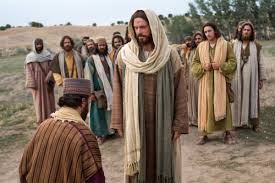
The story of the rich man and Yeshua is an excellent example of the high expectations set for disciples of Yeshua.
Master set the bar high for true discipleship. The sad, sorry and tired adage that so many so-called people of faith like to say, that God knows their heart, just doesn’t fly when one truly considers Master’s true discipleship standards and expectations. For it will be upon that great, end time revealing of the Sons of the Most High, that Yahoshua will separate those who are righteous from those who are unrighteous, and unfortunately for many, there will be no excuse accepted.
Master prophesied:
When the Son of Man shall come in His glory and all the holy angels with Him, then shall He sit upon the throne of His glory. And before Him shall be gathered all nations. And He shall separate them one from another, as a shepherd divideth His sheep from the goats. And He shall set the sheep on His right hand, but the goats on the left. Then shall the King say unto them on His right hand, “Come ye blessed of my Father, inherit the Kingdom prepared for you from the foundation of the world…Then shall say also unto them on the left hand, depart from me, ye cursed into everlasting fire, prepared for the devil and his angels” (Matthew 25:31-41).
Our Master set the bar high for true discipleship and service, just as Father set the bar high for Levitical Priesthood service. Are we then to follow the example of the Levitical Priests, per se? Well, no. The fact of the matter is that we follow exclusively the example of Yeshua HaMashiyach, our Master. The exceptional standards of the Levitical Priests are excellent shadow pictures of the standards and expectations that Master requires of us who are His disciples; we who are being made into a Kingdom of priests unto YHVH; conforming to the image of Yahoshua Messiah.
Faithfully,
Shalom and warmest blessings to you, your family and fellowship.
We were Baptized into Moses in the Red Sea
Our Baptism in the Red Sea Was Illustrative of our Transformation into the People of God So, in our departure from Mitsrayim/Egypt, which was representative of a would-be child of Yah coming into a covenant relationship with Yah through the Person and Ministry of...
Walking in God’s Divine Guidance and Protection
Introduction This week’s Torah Portion/Parshah/Reading is the 56th Reading in our 3-year Torah Reading Cycle. And it is contained in the Cepher of Exodus/Shemot 13:21-15:18. It is a continuation of last week’s reading which I entitled “The Key to Knowing...
The Key to Knowing God: Remembering and Obeying
In the past two readings, which we did not cover because we were on hiatus for the Fall Feasts, Yisrael experienced or witnessed the inauguration of Pesach in the midst of the final tenth plague that resulted in the death of every Egyptian/Mitsri firstborn and the...
The Thirst-Quenching Waters of Sukkot-The Feast of Tabernacles 2022
Sukkot-The Feast of Tabernacles is the Season of our Joy True joy is an offshoot of the indwelling of the Holy Spirit or the Ruach HaQodesh in each of us. Our joy, especially as expressed through Yah's Feasts, is incomplete without the Ruach HaQodesh's influence....
Getting to the Heart of Yom Kippur–Day of Atonement 2022
Yom Kippur Just a Day of Fasting? What did Yah truly mean by His people afflicting their souls on Yom Kippur? Was He commanded us to engage in just a fast? Turns out that Abba requires more from us on Yom HaKippurim than just a full day of not eating and drinking....
The Realities of Yom Teruah 2022
Introduction to our Discussion Welcome to the Day of the Blowing of Trumpets, or better, the Blowing of Shofars 2022. And with that, we pray that you are earnestly preparing and eagerly awaiting the arrival of Yom Teruah 2022. The title of our...
An Overview of the Fall Feasts of the LORD 2022-Part 1 of the Fall Feasts of the LORD 2022 Series
Resurrection Truth versus Rapture Error-Part 3 of the Death, the Grave, and the Resurrection Series
Introduction This is “Resurrection Truth versus Rapture Error.” This will be the 3rd installment to our Death, the Grave, and Resurrection series which spun off from our Torah Reading 45 which was entitled “And he (Ya’achov) was Gathered Unto His People. ...
Even the Small Things Matter to God-A Messianic Study of Exodus 4:22-26-STAR-48
Introduction This is “Even the Small Things Matter to God.” This is the 48th Reading of our 3-year Torah Reading Cycle. It is contained in Exodus/Shemot 4:14-6:1. But we will be focusing just on verses 22 to 26. Looking Back to STAR-47, entitled “God’s Holy...
Rosh Chodesh 6th Month 2022-The Start of the 6th Biblical Month
Chag Sameach Rosh Chodesh beloved. Happy and blessed 6th Month to you all. As I am posting this brief discussion here on The Messianic Torah Observer, the renewed moon will have been sighted by at least two-trained observers in Yisra’el. Thus, wherever we live ...
God’s Holy Character–A Messianic Study of Exodus 3:1-4:13
Introduction This is God’s Holy Character-A Messianic Study of Exodus 3:1-4:13. It is the 47th Torah Portion of our 3-year Torah-reading cycle. Now, despite there being a great many historical and spiritual nuggets that the practical, truth-seeking...
Israel-The Birth of a Nation Through Tribulation-STAR-46
This is Israel: The Birth of a Nation Through Tribulation. It is a study of the 46th Parshah of our 3-year Torah Reading Cycle. This week's reading is found in Exodus/Shemot 1:1-2:25. Introduction to the Reading The historical record transitions from that of a focus...
Death-the Grave-the Resurrection-Part 2
Introduction This is part 2 of our discussion on death, the grave, and the resurrection. And we will be picking up where we left off in part 1, which if you haven’t had the opportunity to either read or listen to that post on any of the platforms in which...
He Was Gathered unto His People-Death-The Grave-The Resurrection–Part-1–STAR-45
Introduction This is “He Was Gathered unto His People—Death-The Grave-The Resurrection—Part 1” This will be a discussion on the 45th Torah Reading of our 3-year Torah Reading Cycle. Our focus text is Genesis/Beresheit 49:27-50:26. This passage concludes...
The 9th of Av–You Are Called by Name–STAR-44
Tisha B'Av--The 9th of Av--"The Saddest Day of the Jewish Calendar Year." According to Hillel’s Calendar, which I frequently refer to as the Jewish Calculated Calendar, as I am recording and posting this installment of TMTO Sabbath Thoughts and...
“Let No Man Judge You” in Your Keeping of Torah–A Messianic Examination of Colossians 2:16-17
This is "Let No Man Judge You" in Your Keeping of Torah--A Messianic Examination of Colossians 2:16-17. This is sort of a continuation, if you will, to our very last installment which was entitled “Did the Apostle Paul Permit the Eating of all Meats? A...
Did the Apostle Paul Permit the Eating of All Meats? A Messianic Examination of 1 Timothy 4:1-5
Setting the Table for our Discussion Here Today This is “Did the Apostle Paul Sanction/Permit the Eating of all Meats? A Messianic Examination of 1 Timothy 4:1-5.” Our discussion here today will serve as another installment to our massive Paul and Hebrew...
Does Torah Cause Someone to Sin More? A Messianic Examination of Romans 5:20
Goal: This is “Does Torah Cause Someone to Sin More? A Messianic Examination of Romans 5:20.” And so, our survey of the hard-to-understand—those challenging Pauline passages—takes us in today’s installment of TMTO, to Romans 5:20. And the KJV...
Experiencing the Wisdom of God Persists Even in the Midst of Despair–STAR-37
This week's portion is the 37th-Reading of the 3-year Torah Reading Cycle (STAR-37). And it is a familiar passage. For it is the story of Yosef interpreting the dreams of the cupbearer and baker in the Egyptian prison. If we recall STAR-36, Yosef was cast into prison...
Amazing Things Happen When God is with Us–Torah Reading 36–The Story of Joseph and Potiphar’s Wife
Our Torah Reading for this Shabbat of 6/11/2022 is found in Genesis 39:1-23. It is The Story of Yosef and Potiphar's Wife. We find in this reading, themes of righteousness; trust; loyalty; prosperity; sexual immorality; favor-favor with man and favor with God; and...
Finding Peace with God-Eternal Life and a Blessed Assurance
This is “Finding Peace with God—Eternal Life and a Blessed Assurance.” This is a continuation of our Paul and Hebrew Roots mega-series where we’ve been discussing some of the more challenging—hard to understand Pauline writings. And we’ve been spending most of our...
The Story of Judah and Tamar: A Reminder that Yah’s Will Shall Already Triumph Over Humanity’s Carnality
This Week's Torah Reading #35--The Judah-Tamar Story This week's Torah Reading, number 35 in our three-year Torah Reading cycle, is found in Genesis/Beresheit 38:1-30. It is the story of Yehudah (aka Judah) and Tamar. It conveys tremendous spiritual lessons that...
Shavuot-Pentecost 2022 in Focus–Netzari-Messianic Perspectives on the Feast of Shavuot
1. An Introductory Primer on Shavuot What is Shavuot? For the Torah Observant Believer in Yeshua Messiah, Shavuot—The Feast of Weeks—Pentecost is about the giving and receiving of YHVH’s Torah and the establishing of the marriage covenant between YHVH and the Children...
The Inapplicability of Torah–Part 3 of Where There is no Law There is no Transgression
This is “The Inapplicability of Torah.” It is the final installment to our 3-part series within a series entitled “Where There is no Law There is no Transgression.” Because I have so much content to cover today and I’m led to bring this series within a series to a...
Where There is no Law There is no Transgression-Part 2-The Role of Torah in the World
Quick Review of Part 1 Our focus passage was Romans 4:11-15 with particular emphasis on verse 15: For Torah brings wrath, because where there is no law there is no transgression [of the law]. Unfortunately, denominationalists erroneously use this and related...
Where there is no law, there is no transgression: Part-1-The Difference Between Sin and Transgression of the Law
A Continuation of Where we Left Off Today, we sort of pick up where we left off in our previous Paul and Hebrew Roots series. If you recall from our last installments to this series, the so-called Apostle to the Gentiles asserted to his Roman readers that he fully...
The Exceeding Kingdom Qualifying Righteousness That Takes us from Passover to Tabernacles-Part 2–Maintaining our Righteous Garments
Goal I will be picking up from where I left-off from Part-1 of our last discussion entitled "The Exceeding Kingdom Qualifying Righteousness That Takes us from Passover/Pesach to Tabernacles/Sukkot.” Or rather, from Babylon/the world to the Kingdom. And if by...
Overturning Roe v. Wade and the Modern Messianic-Thoughts and Reflections
A Leak That is Shaking up Nation On M-nday, 5/2/2022, The Epoch Times reported that a supposedly leaked U.S. Supreme Court document suggests that the Judicial Branch of this country may finally overturn controversial Roe V. Wade. News of this leak rocked the...
God Humbles Those Who He Enters into Covenant With
This is an overview of the 30th Reading of our 3-year Torah Reading Cycle. It is found in Genesis/Beresheit 31:3-32:2. I use the Hebrew names of the patriarchs throughout this post. And just to familiarize you with the names so as to not cause any confusion:...
The Exceeding Kingdom Qualifying Righteousness That Takes us from Passover to Tabernacles-Part 1
The Exceeding Kingdom Qualifying Righteousness That Takes Us from Passover to Tabernacles-Part 1 One of the many things about Passover (aka Pesach) and the Days of Unleavened Bread (aka Chag HaMatzah) that we must be mindful of as we progress through the...
Keeping Passover by Way of the Renewed Covenant-Part 3 of Keeping Passover and Unleavened Bread in 2022
This is the third and final installment to our “Keeping Passover and Unleavened Bread in 2022” discussions. This installment is entitled “Keeping Passover by Way of the Renewed Covenant-In Spirit and in Truth.” If by chance you did not read or listen to...
Keeping Passover by Way of the Original Covenant-Part 2 of Keeping Passover and Unleavened Bread in 2022
This is “Keeping Passover and Unleavened Bread in 2022.” This will be part two (2) of a three (3) part discussion on Passover and the Feast of Unleavened Bread or Chag HaMatzah, which I’ve elected to entitle this particular discussion: “Keeping Passover by Way of the...
Some Passover Basics-Keeping Passover and Unleavened Bread in 2022-Part 1
This is “Some Passover Basics.” It is the first installment of a three (3) part series I chose to entitle: “Keeping Passover and Unleavened Bread in 2022.” We have a lot to cover. So let’s get right into it. For those of us who keep the Observational...
Shabbat HaGadol–The Pathway Towards our Redemption and Atonement-STAR-28
This is Shabbat HaGadol: The Pathway Towards our Redemption and Atonement. In observing Jewish circles, this Sabbath is referred to and celebrated as “Shabbat HaGadol.” Otherwise referred to as the great Sabbath, Shabbat HaGadol is traditionally held on...
Guarding the Month of Aviv-Aviv’s Critical Importance to God’s Covenant Elect
Opening Remarks "Observe the month of Abib, and keep the Passover unto Yehovah thy Elohim; for in the month of Abib Yehovah thy Elohim brought thee forth out of Egypt by night" (Deu./Devarim 16:1; ASV modified). Which brings me to the title of this discussion...
Birthrights-Blessings-Covenant Promises: Lessons Learned from the Story of Esau and Jacob-Part 2-STAR-26
This is Birthrights, Blessings, Covenant Promises-Lessons Learned from the Story of Esau and Jacob, Part 2. This will be the 26th Torah Reading or Parshah of the 3-year Torah Reading Cycle. Our reading is found in Genesis or Beresheit 27:30-38:9. Having...
Birthrights-Blessings-Covenant Promises-Lessons Learned from the Story of Esau and Jacob-Part 1-STAR-26
This is Birthrights, Blessings, Covenant Promises-Lessons Learned from the Story of Esau and Jacob, Part 1. This will be the 26th Torah Reading or Parshah of the 3-year Torah Reading Cycle. Our reading is found in Genesis or Beresheit 27:30-38:9. As in...
Does Paul Discourage God’s People from doing Good Works or Keeping Torah in Favor of Faith? Part 2 of The New Testament Validates the Necessity of Torah Living for God’s People Series
This is “Does Paul Discourage God’s People from doing Good Works in Favor of Faith?” This will be part 2 of our Paul Officially Validates Torah Living for God’s People series. Our focus passage for this discussion is found in Romans 4:1-8. But we will pay...
The Realities of Covenant Blessings in this World-Covenant Lessons Learned from Isaac-STAR-24
Clarify Chosen STAR-23 Post Before we begin our reading discussion for this week, I wanted to add just a thought to last week's post entitled "How do we know if we have been chosen to be in covenant with God." If you've not had the opportunity to read or...
How do we Know if We’ve Been Chosen to be in Covenant with God? –STAR 23
This is “How do we Know if we Have been Chosen to be in Covenant with God?” It is the 23rd parshah/reading of our 3-year Torah Reading Cycle. It’s found in Genesis or Bereshit, 25:1-26:11. It’s a longer reading than most in the 3-year reading cycle. But because the...
Biblical Rosh Hashanah 2022 Update
Starting off, I would be remiss if I did not connect this update with my last post entitled "Why I Keep the Torah (Observational) Calendar and not the Other Popular Messianic Calendars." In that post, I gave five reasons why I keep the Torah (Observational) Calendar....
Why I Keep the Torah (Observational) Calendar and not the Other Popular Messianic Calendars
Goal of this Post The timing and purpose for this post is not one of happenstance. For this week is a most critical time for those of us who keep the Torah (Observational) Calendar. This week, a number of trained and experienced search teams consisting of Karaite Jews...
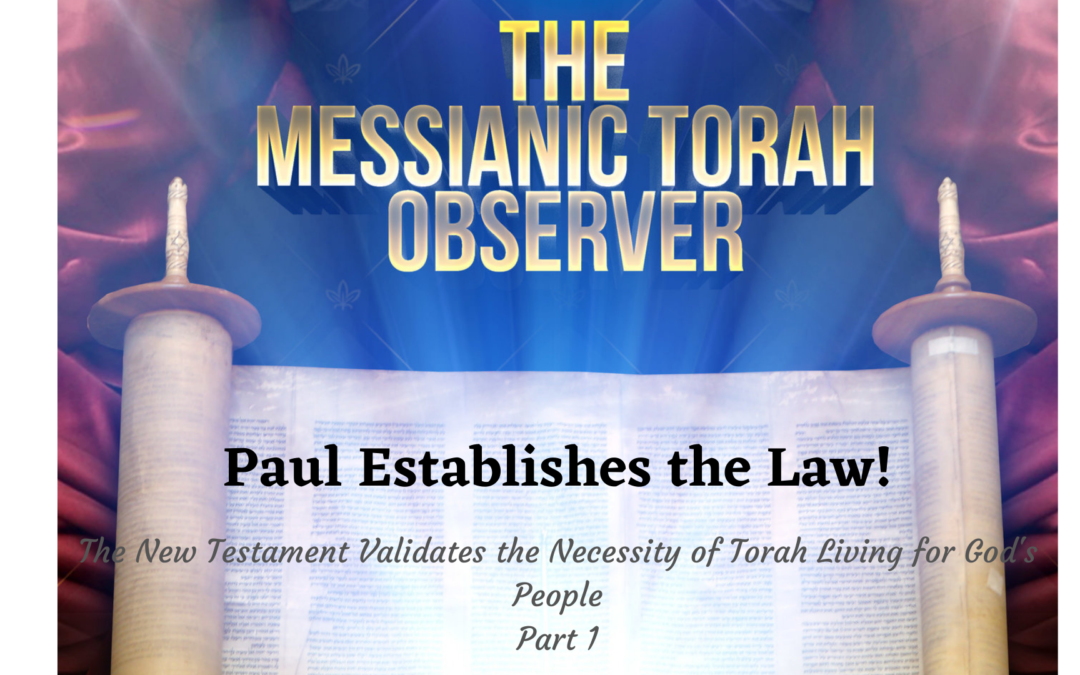
Paul Establishes the Law-Part 1 of the New Testament Validates the Necessity of Torah-Living for God’s People Series
In today’s discussion, we will attempt to define what the apostle means by “we establish Torah” in light of those seeming “anti-Torah” statements he makes in chapter 3 of the Book of Romans.
The Messianic Versus the World-Part 1-The Messianic Against the Corrupt and Evil Governments, Leaders and Sheeple of this World
The Messianic Versus a Corrupt World The governments of this world along with their leaders are openly evil and corrupt. They have brazenly shown that they have no shame in this regard. Many, in fact, have boasted of their evil and corrupt ways and intentions to...
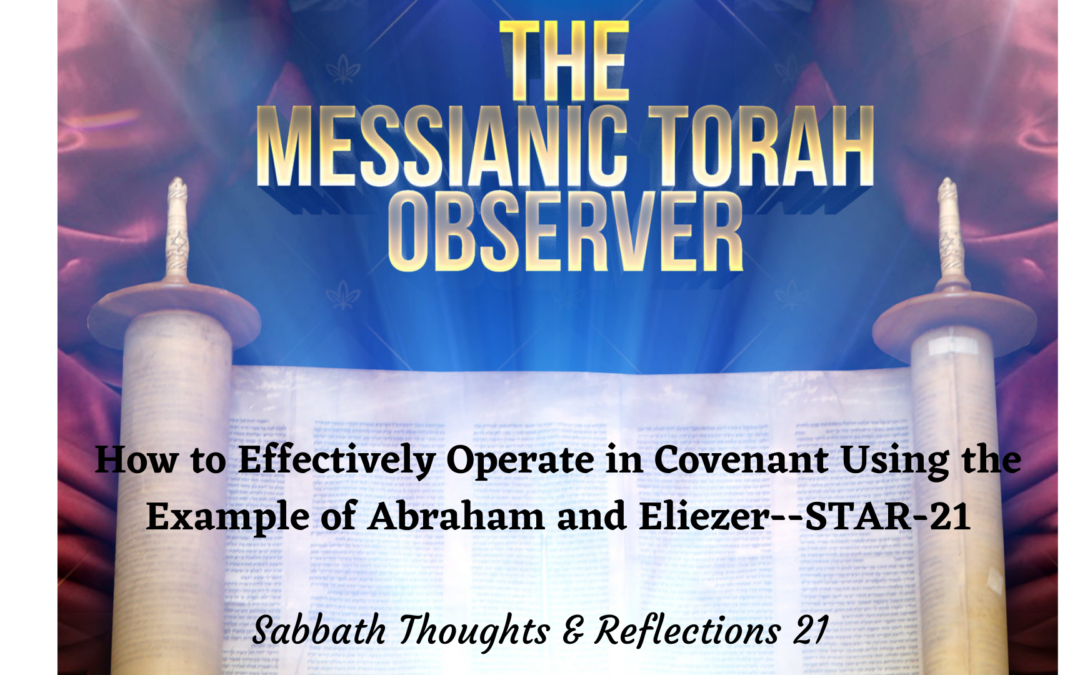
How to Effectively Operate in Covenant Using the Example of Abraham and Eliezer–STAR-21
We’ve talked quite a lot about be the importance of being in covenant and operating in covenant. But how does one operate in covenant? What is needed to operate in covenant. Well, this week’s Torah Reading may provide us the answers to these questions. Shabbat Shalom and Welcome.
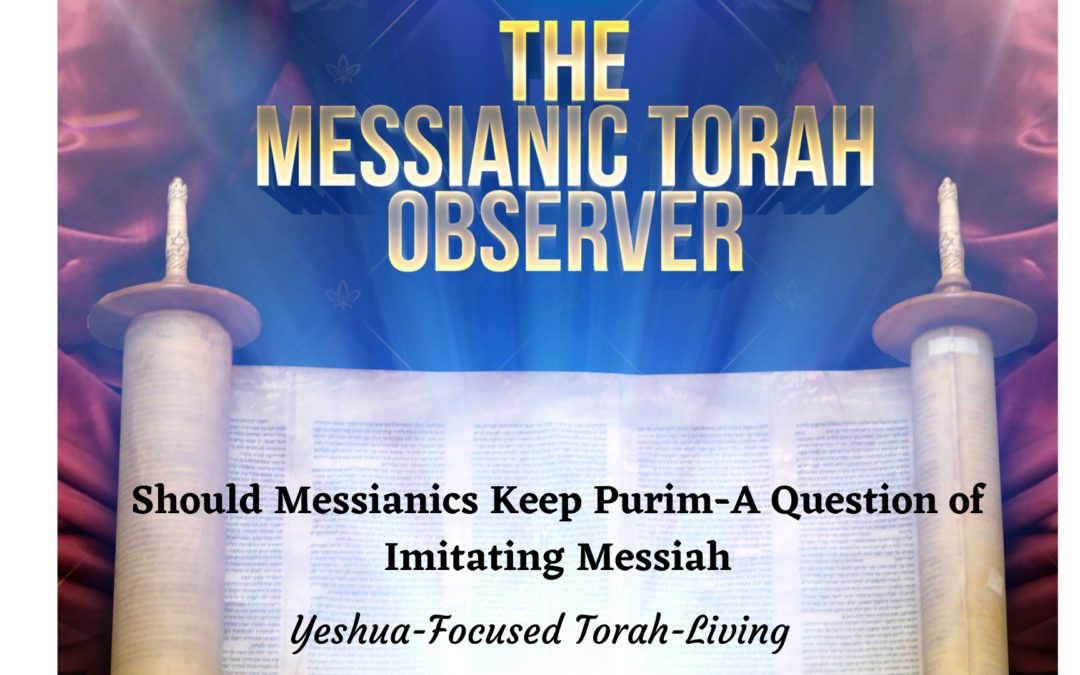
Should Messianics Keep Purim? A Question of Imitating Messiah
In this installment of TMTO, we ask and answer the question: Should Messianics keep-observe-honor-memorialize Purim? And in our brief exploration of this topic, we examine opposing views as it relates to Messianics and Purim.
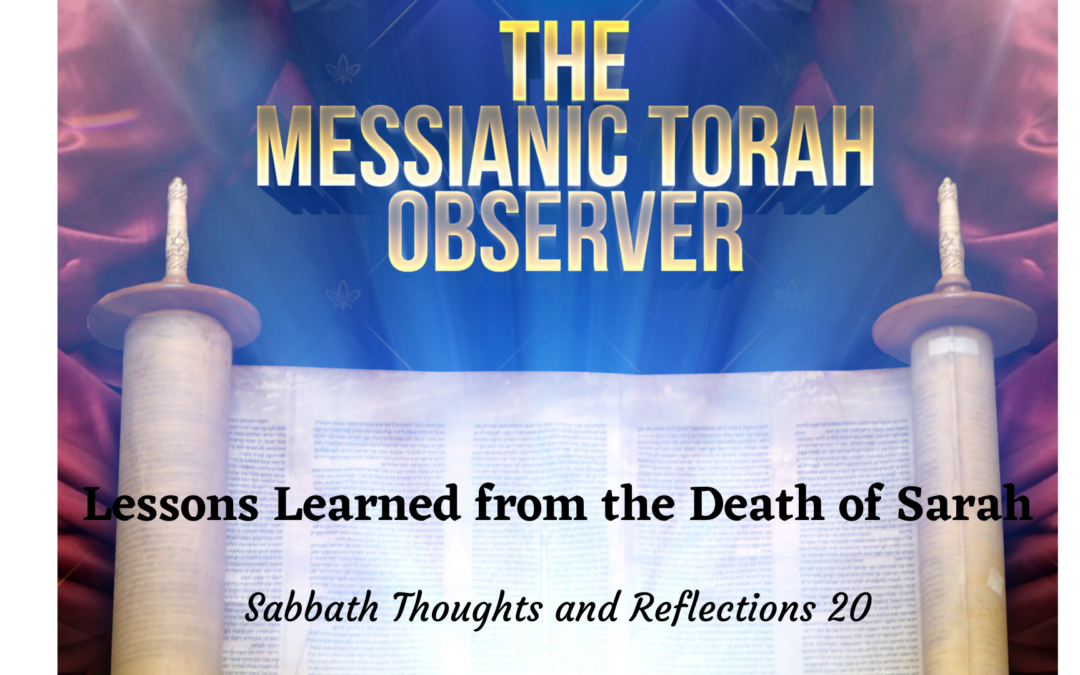
Lessons Learned from the Death of Sarah-STAR-20
In our Torah Reading for this Sabbath, we read of the death of the Matriarch of our Faith, Sarah. And in our discussion, we will explore the eternal truths associated with this sad, but important story. We will touch upon the themes of loving our wives; being a sojourner in this world; burial versus cremation when caring for a deceased loved one; as well as we’ll examine many of the historic and cultural elements that are attached to this beautiful Reading. Shalom and Welcome.
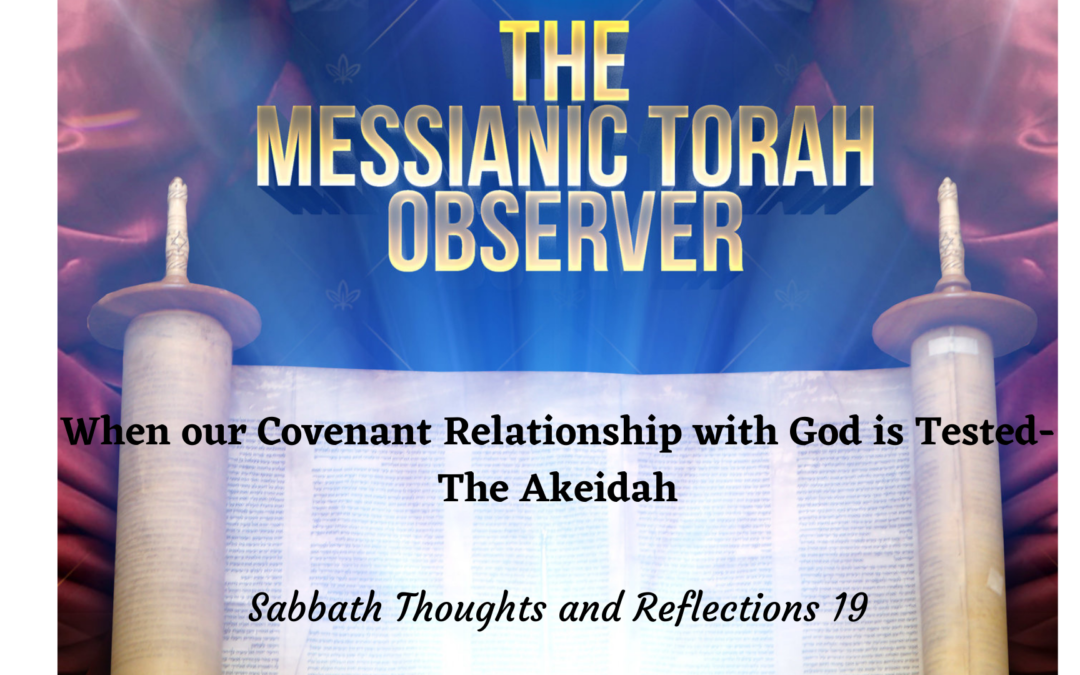
When our Covenant Relationship with God is Tested-Akeida-STAR-19
This week’s Torah Reading is that of the Akeidah or the binding of Isaac. It is a story about obedience, trusting faith and the ultimate goal of the Abrahamic Covenant. We will also explore the ramifications associated with God’s testing of those whom He loves. This is one of the most important Torah Reading Discussions of the Torah Reading Cycle. Come fellowship with us and let’s discuss the Eternal Mysteries of Yah’s Eternal Words of Life.
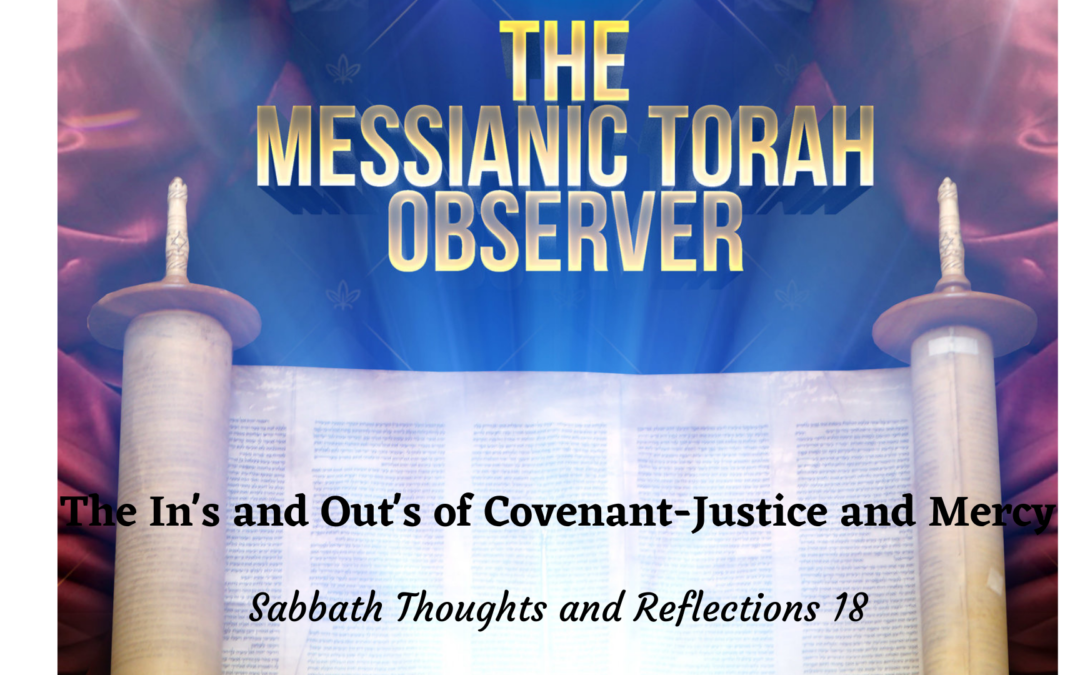
The In’s and Out’s of Covenant-Justice and Mercy-STAR-18
Many of us view covenant as an exclusive club or culture that belongs to God’s elect and those who find themselves outside of covenant are doomed to be outside of God’s blessings and provision. But the truth of the matter is that God operates in ways that are often foreign to us and that defy how we believe God should operate. In today’s Torah Reading discussion, we discuss the in’s and out’s of covenant and how God’s justice and mercy define how He will interact with those who are in covenant versus those who are outside covenant.
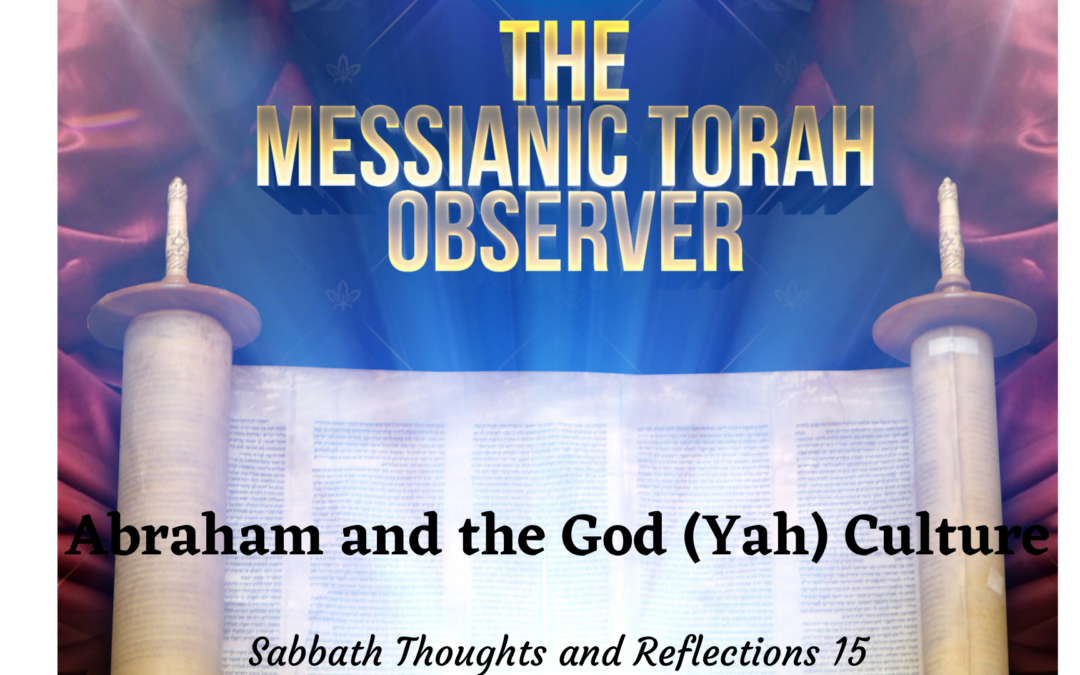
Abraham and the God (Yah) Culture–Sabbath Thoughts & Reflections 15
This week’s Torah Reading touches on a number of relevant themes that include righteousness, justice, reverence, hospitality, boldness, laughter, theophanies and covenant. But the one theme that stands out most is culture. In this installment of TMTO’s Sabbath Thoughts and Reflections, we explore each of these themes, in particular the theme of culture. What is the God Culture/the Hebrew Culture? What was Abraham’s role in that Culture? And what does that culture have to do with us today?
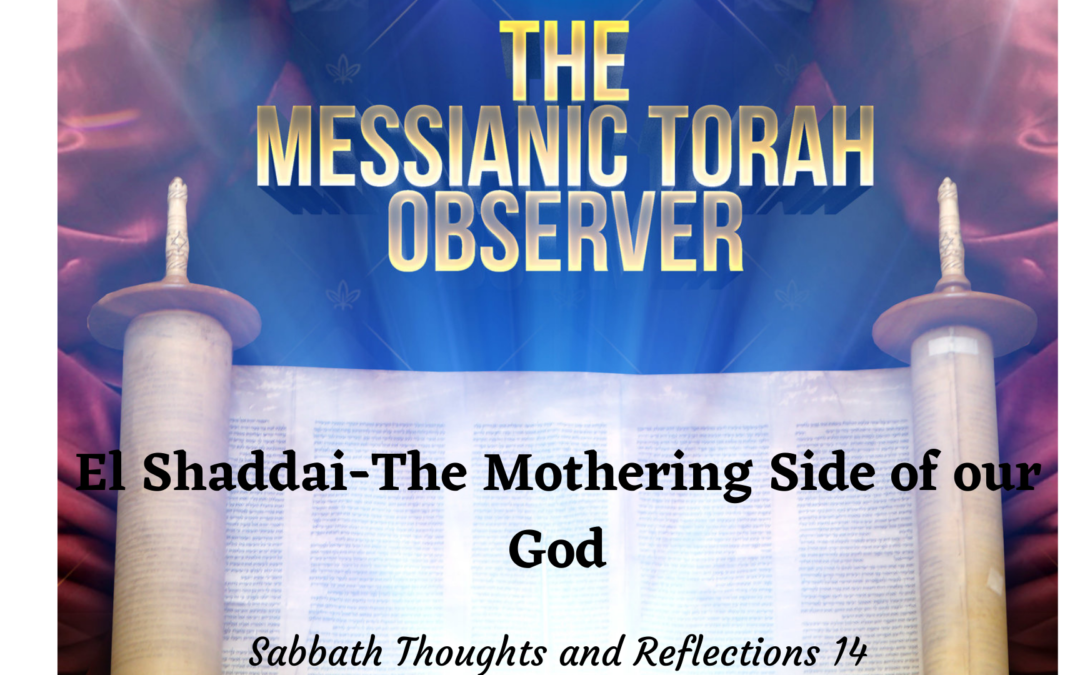
El Shaddai-The Mothering Side of our God-STAR 14
Seems we have been indoctrinated to view God exclusively from a “Fathering” perspective. But could one of God’s revealed names be indicative of a “Mothering” side to the Creator of the Universe? In this installment of TMTO we explore and discuss the power and meaning of El Shaddai.
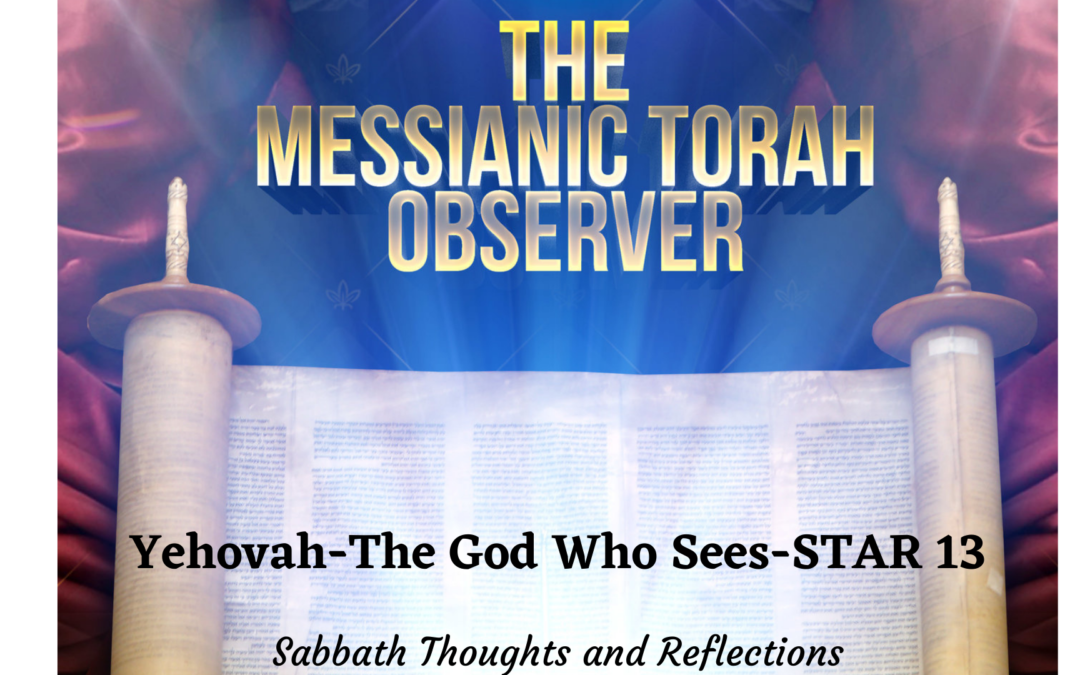
Yehovah-The God Who Sees-STAR 13
In our reading today, we’re led to think and reflect on the themes of:
● Trusting Faith
● Respect
● Patience & Perseverance
● Responsibility
● Honor
● The Spirit Realm Intersecting with the Physical Realm
● Promise
● Sonship
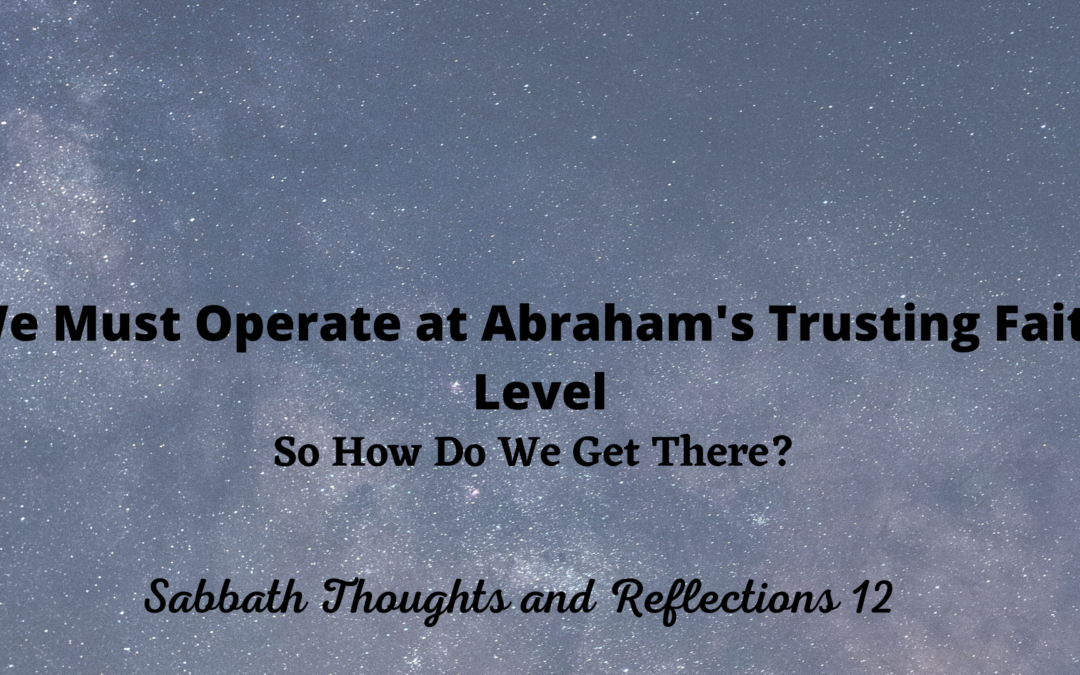
We Must Operate at Abraham’s Trusting Faith Level-So How Do We Get There? STAR 12
Today’s Torah Reading discussion will touch upon a great many themes that include operating in a trusting faith; the righteousness of Elohim; obedience to Yah’s instructions; divine protections and rewards; and the wisdom of challenging or questioning Yehovah.
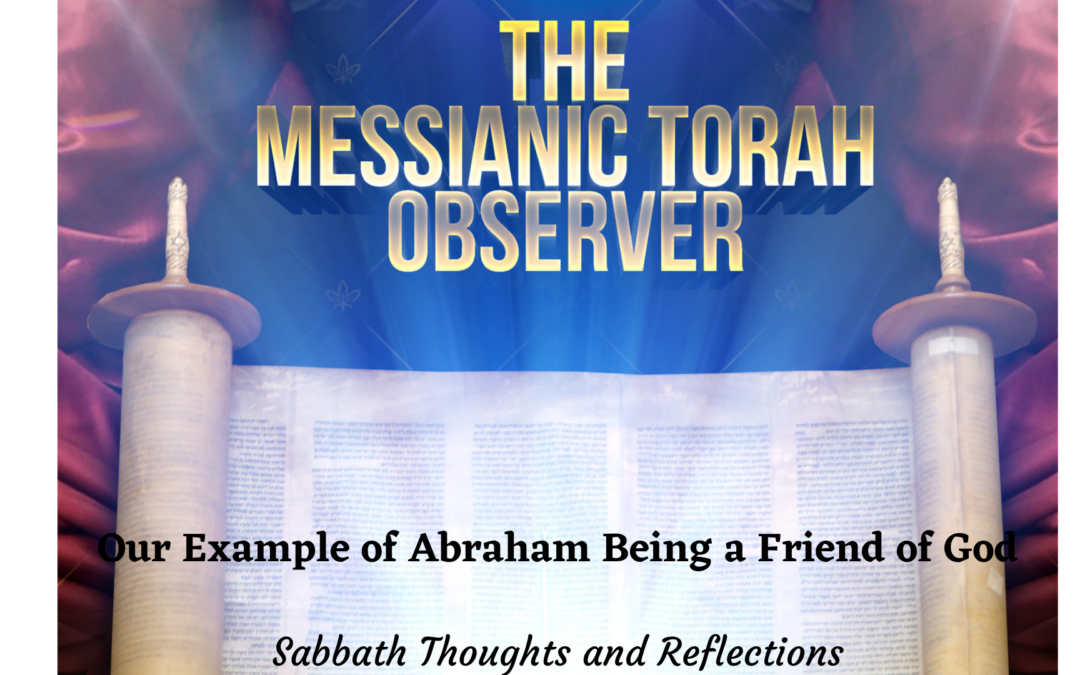
Our Example of Abraham Being a Friend of God-STAR-11
The circumcised heart of an individual—contrite and broken and humble in spirit—is the one thing that captures Yah’s attention and places him or her in contention for being chosen as His friend and ultimately His child. If our heart ain’t right, we ain’t going to be chosen to enter into an obedient covenant relationship with Yehovah, much less a friend or child of His.
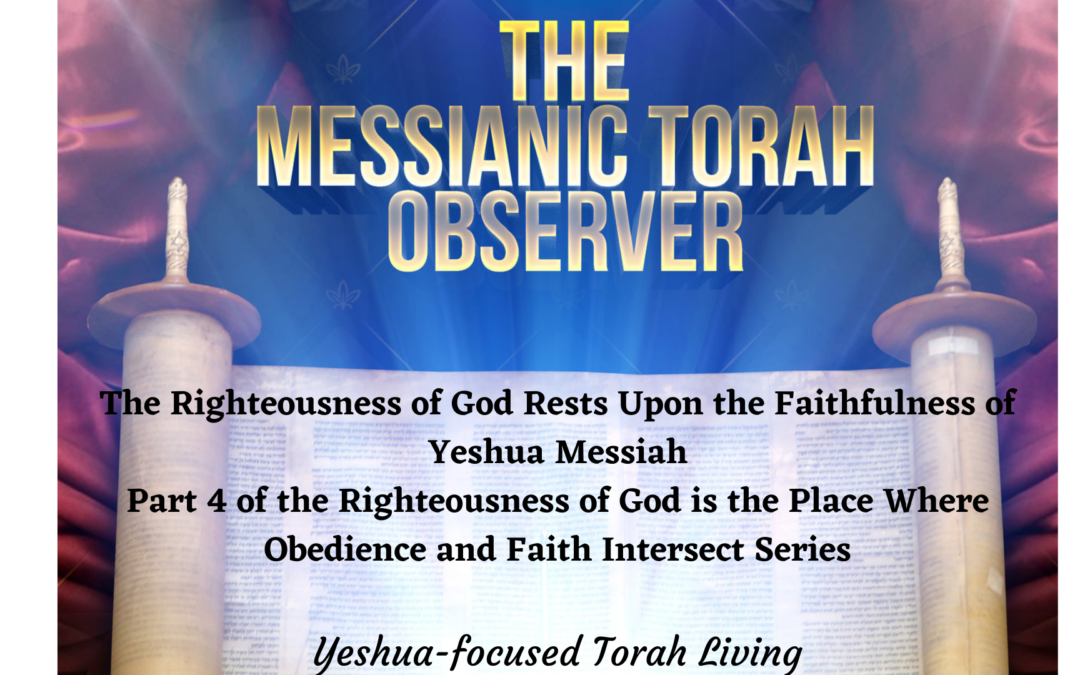
The Righteousness of God Rests Upon the Faithfulness of Yeshua Messiah
Indeed, the Righteousness of God is the place where faith and obedience come together through the Person and Ministry of Yahoshua Messiah. His faithful obedience to Yehovah becomes our faithful obedience, even unto death.
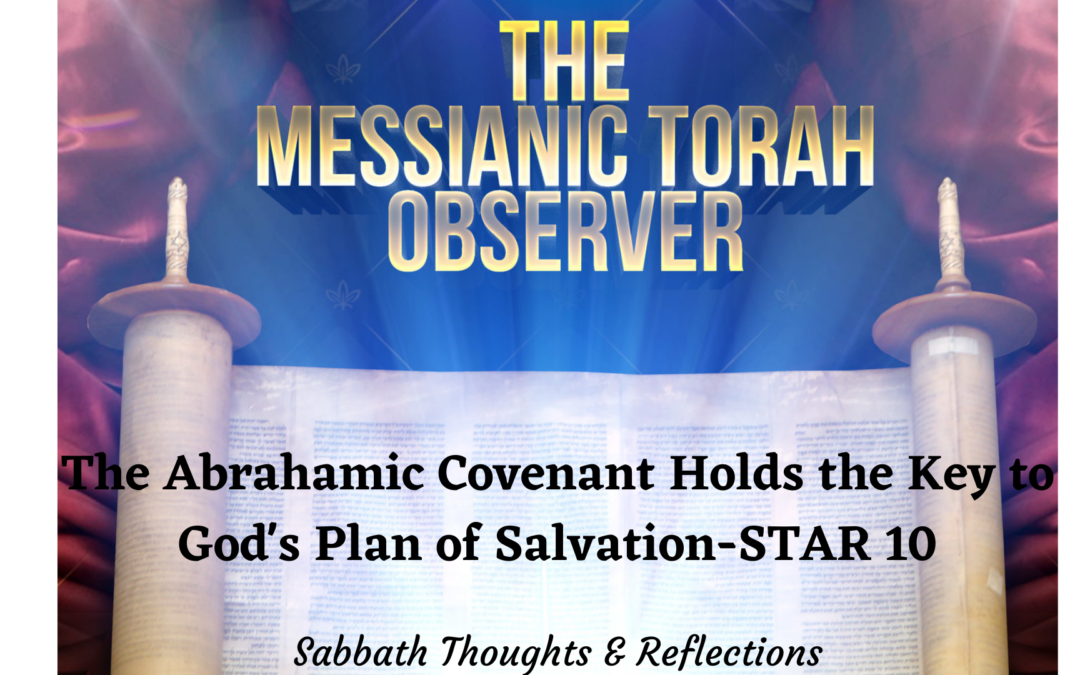
The Abrahamic Covenant Holds the Key to God’s Plan of Salvation-STAR 10
The Abrahamic Covenant is the essential element of this week’s Torah Reading. We find in our discussion that the Abrahamic Covenant holds the key to God’s Plan of Salvation. Shabbat Shalom.
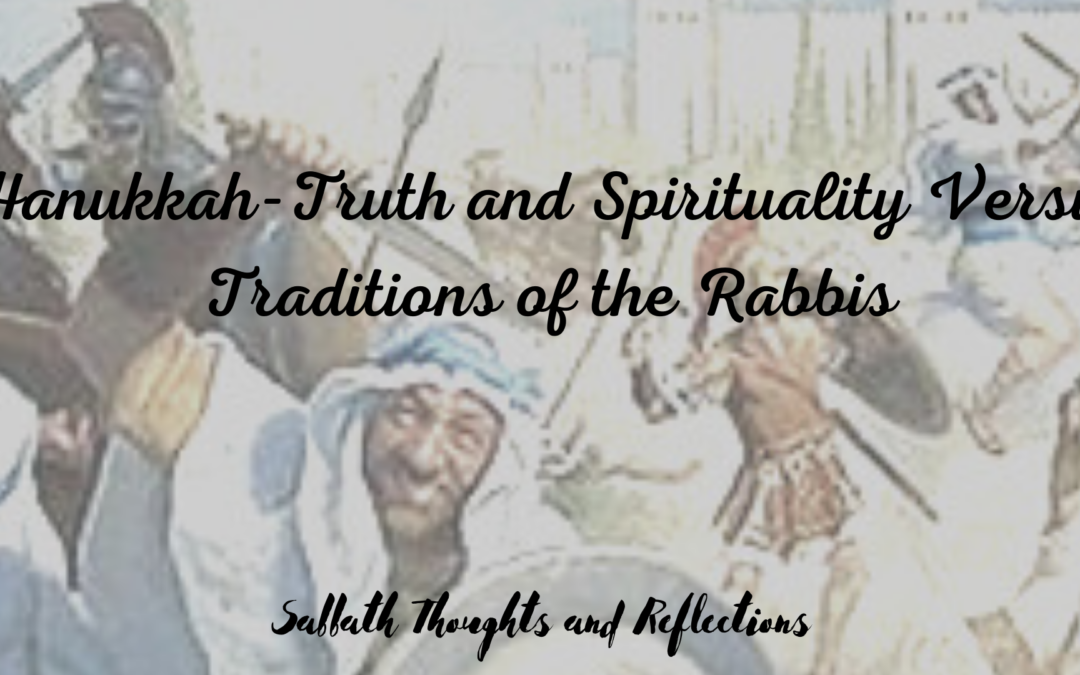
Hanukkah-Truth and Spirituality Versus Traditions of the Rabbis
Many within our Faith Community will be celebrating Hanukkah this week. But is their celebration aligned with the Truth and Spiritual Reality of the Holiday or rather on the Traditions that revolve around it.
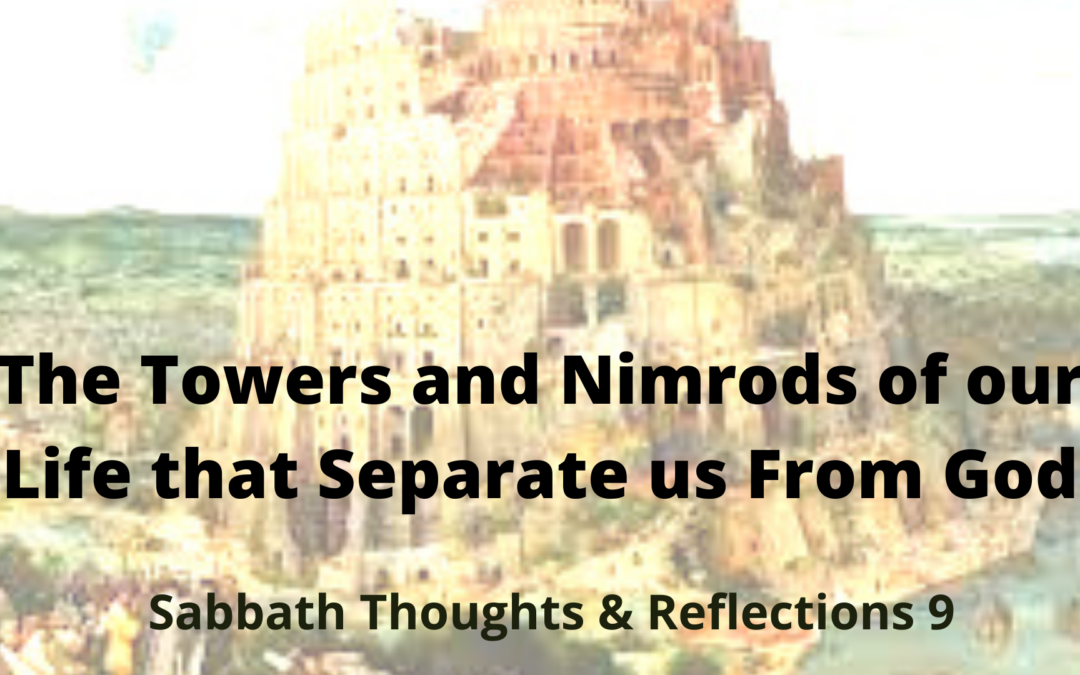
The Towers and Nimrods of our Life that Separate us From God
This week’s Torah Reading is based upon the Tower of Babel story. This story may cause us to reflect and think about those towers in our lives that cause us to be separated from God.

As the Days of Noah Were…Sabbath Thoughts and Reflections 8
What are the implications for us of Yeshua’s prophecy that the world He would return to would be as the days of Noah were? We discuss, think and reflect. Shabbat Shalom.
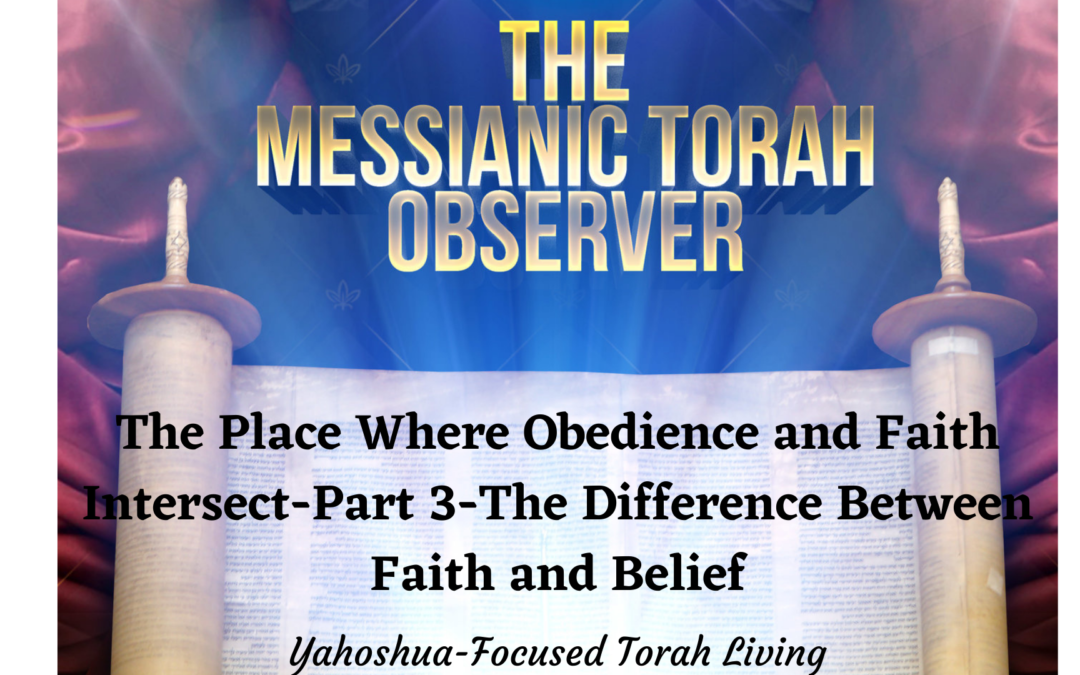
The Difference Between Faith and Belief-The Righteousness of God is the Place Where Obedience and Faith Intersect-Part 3
In our continuing exploration of Shaul’s teaching on the Righteousness of God, we answer the critical question: Is there a difference between biblical “faith” and “belief? Both terms are mentioned as important elements to our receiving of God’s Righteousness.
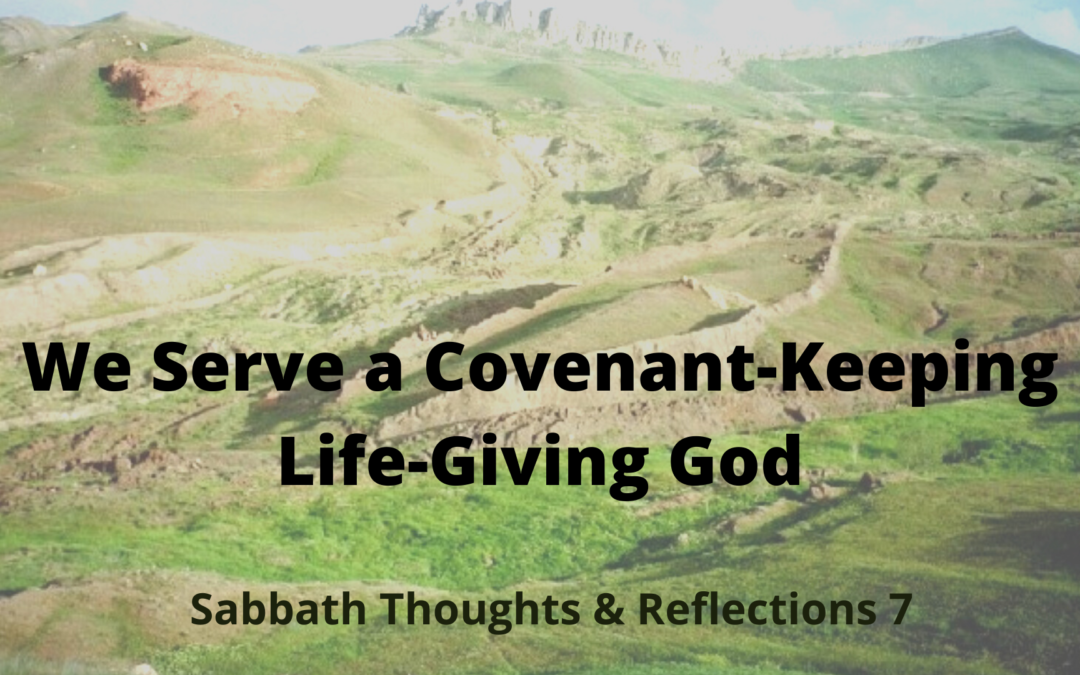
We Serve a Covenant-Keeping Life-Giving God-STAR-7
In this week’s Torah Reading, we discuss the Truth about the Noahide Laws; the true significance of the rainbow; and the character of God that promotes life and covenant among humanity. Come study and fellowship with us. Shabbat Shalom.
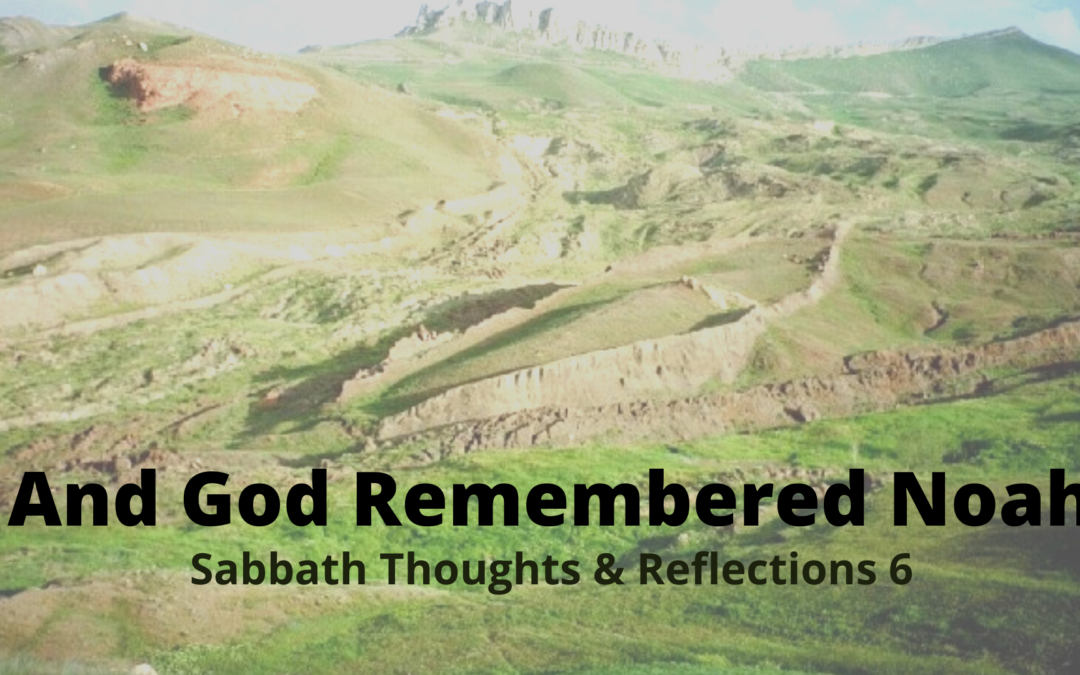
And God Remembered Noah-Sabbath Thoughts & Reflections 6
This week’s Torah Reading is the story of the saving of Noah and his family brought about through God keeping covenant and manifesting His righteousness. Come study with us. Shabbat Shalom.
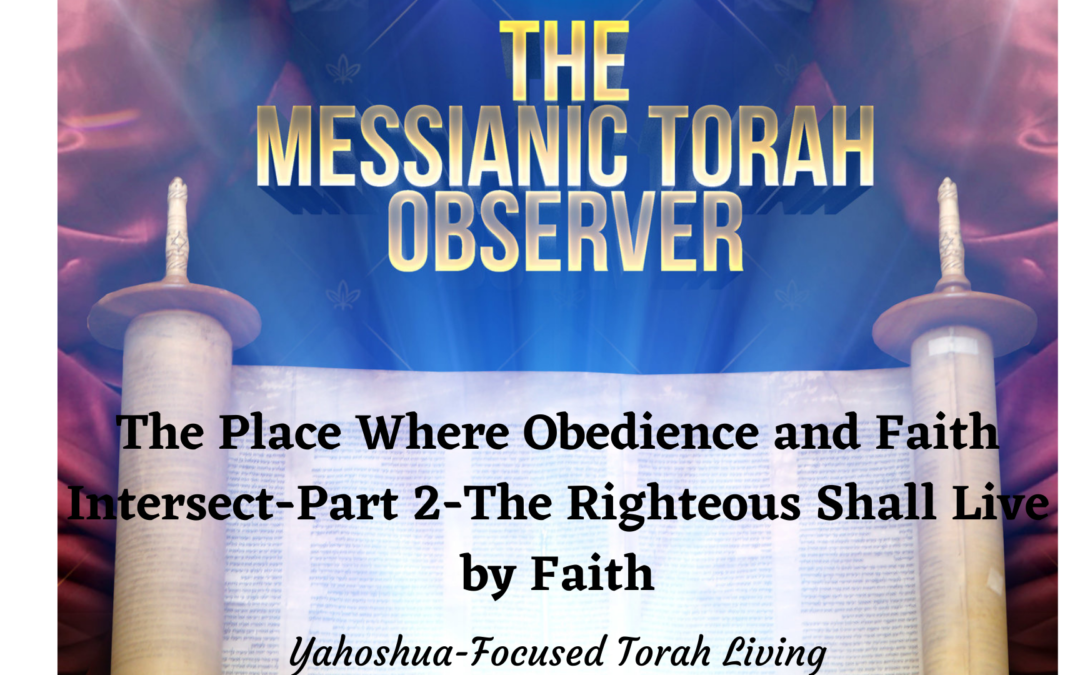
The Righteousness of God is the Place Where Obedience and Faith Intersect-Part 2-The Righteous Shall Live By Faith
Paul declared to the Romans that the just shall live by faith. What exactly did he mean by that statement, especially as it relates to our walk in Messiah? We discuss
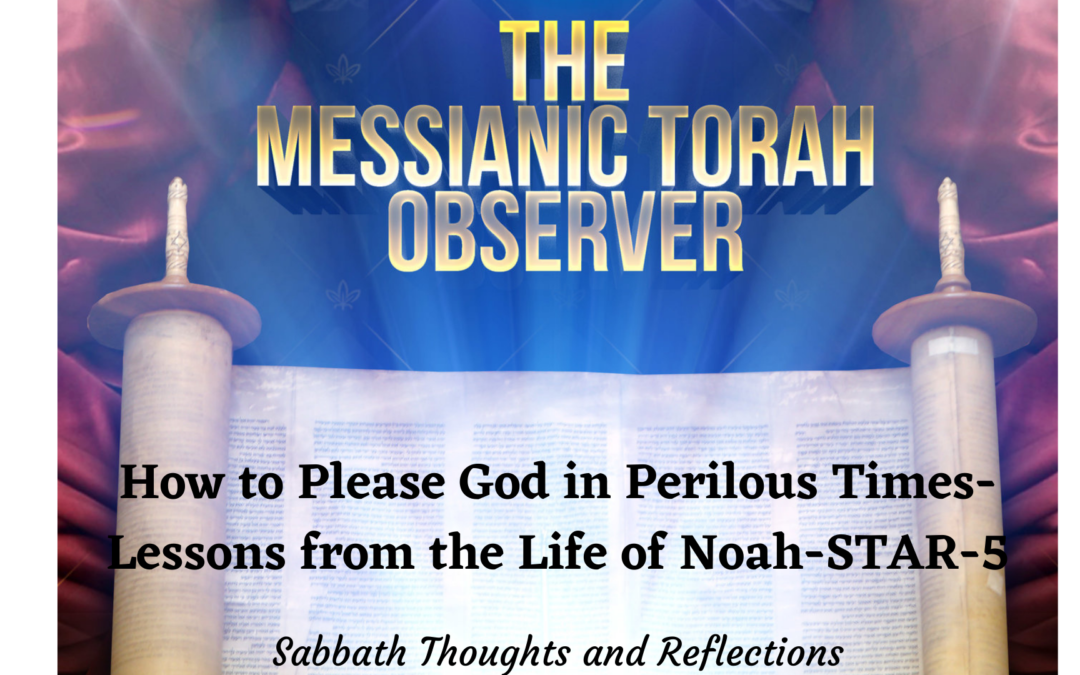
How to Please God in Perilous Times-Lessons from the Life of Noah-STAR-5
Noah pleased God in one of the most wicked periods of human history. What was it about Noah that pleased God? His story is the key to our pleasing God in these perilous times and we discuss in this installment of TMTO STAR.
Forbidden Messianic Titles and Roles for the Body of Messiah
This is "Forbidden Messianic Titles and Roles for the Body of Messiah." And this discussion is within the purview of the central theme for this ministry: "Yeshua-focused Torah Living." We are all about promoting the Netzari Faith that was once delivered to the...
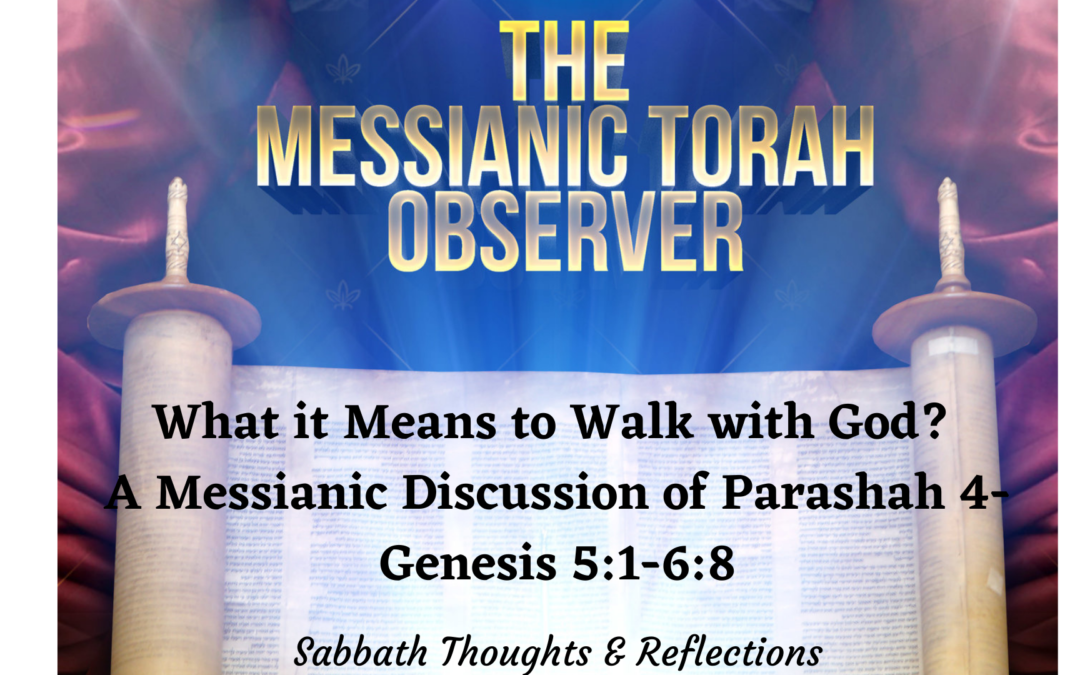
What it Means to Walk with God? STAR-4
Today’s discussion is entitled: “What it Means to Walk with God;” it is a Messianic Discussion of the 4th Parashah in the 3-year Torah Reading Cycle. Our discussion text for this Shabbat will be Genesis 5:1-6:8. I will be reading and commenting from the...
The Righteousness of God is the Place Where Obedience and Faith Intersect-Part 1-What is the Righteousness of God?
This is “The Righteousness of God is the Place Where Obedience and Faith Intersect—Part 1—What is the Righteousness of God?” Pose the Central Questions Inevitably, the central question facing Messianics is how does one balance a life of Torah-honoring with that of...
The Heart of True Worship-STAR-3-A Messianic Discussion of Genesis 4:1-26
Today’s discussion is entitled: “The Very Heart of True Worship;” it is a Messianic Discussion of the 3rd Parashah in the 3-year Torah Reading Cycle. Our discussion text for this Shabbat will be Genesis 4:1-26. I will be reading and commenting from the...
Who is to Blame for the Sin of the World? Adam or Eve?” STAR-2-A Discussion of Genesis 2:4-3:24
INTRODUCTION This is Sabbath Thoughts and Reflections 2—A Discussion of Genesis 2:4-3:24—Parashah 2 in our 3-year Torah Reading Cycle. Since the rabbis did not have a hand in naming the individual Torah Readings in the 3-year Reading Cycles, for the sake of reference,...
The Call to True Biblical Repentance is to Teshuva
A Question of Kingdom Preparedness This was a teaching I delivered to a Sabbath-keeping group online this past Sukkot. I've entitled it "The Call to True Biblical Repentance is to Teshuva." This teaching is actually the firstfruits, if you will, of an overall...
Made in the Image of God-Sabbath Thoughts & Reflections on Genesis 1:1-2:3
"In the beginning Yehovah created..." appears to be a subordinate or supportive statement as opposed to an independent clause. Assuming subordinate/supportive is accurate, the clause is better rendered: "When Yehovah began to create the heavens and the earth..."...
[If] The Law Does Not Save—[Then] What Good Is It–A Messianic Discussion of Romans 3:9-20
Goal Today’s installment of The Messianic Torah Observer is entitled: “[If] The Law Does Not Save—[Then] What Good Is It--A Messianic Discussion of Romans 3:9-20.” Our goal for today’s discussion is to draw from the Apostle Paul’s letter to the first-century Roman...
What Right Does God Have to Punish Anyone? A Messianic Discussion of Romans 3:5-8
Goal: This is a continuation and an expansion of the diatribe the apostle began back in the second half of the second chapter of Romans which I’ve entitled: “What Right Does God Have to Punish Anyone—A Messianic Discussion of Romans 3:5-8.” And our goal for this...
Let God Be True and Every Man a Liar–A Messianic Discussion of Romans 3:3-4
Goal: This is “Let God Be True and Every Man a Liar—A Messianic Discussion of Romans 3:3-4.” It will be a resumption of our examination and discussion of Romans chapter three (3), picking up where we left off from the last installment of our overarching Paul and...
The Oracles of God-The Jewish Advantage-A Messianic Discussion of Romans 3:1-2
The Oracles of God-The Jewish Advantage-A Discussion of Romans 3:1-2 Today’s discussion is entitled: “The Oracles of God—The Jewish Advantage--A Discussion of Romans 3:1-2. This will be a continuation of our long-running Paul and Hebrew Roots Series. Looking...
Paul on Physical Circumcision-A Question of One’s Jewishness Part 4
In today's post we answer the questions: Is physical circumcision still a valid commandment for men of faith to keep and obey? What advantage is there to physical circumcision? Synopsis of the Preceding Installments to the Series Over the course of the last three...
Marriage and Divorce According to Torah Part 2–A Discussion of Parashah 144
Marriage and Divorce According to Torah Part 2—A Discussion of Parashah 144 This is the second post or second half of the overall discussion I have for you regarding this week’s Torah Reading of Deuteronomy 24:1-4. In this post we will cover the teachings of Y’shua...
Marriage and Divorce According to Torah Part 1–A Discussion of Parashah 144
Marriage and Divorce According to Torah Part 1—A Discussion of Parashah 144 Although our Torah Reading for today, Parashah 144, covers Deuteronomy 24:1–25:19, I was led by the content to focus only on the first four-verses of the entire reading. The focus of these...
What Loving One Another Looks Like–The Morality and Love of Torah-Parashah 143
What Loving One Another Looks Like--The Morality and Love of Torah-Parashah 143—Sabbath Thoughts and Reflections Our Torah Reading This Week—Parashah 143—Is Found in Deuteronomy 22:8-23:25 The physical should always be followed when applicable, but also the...
What is the True State of our Worship?–Parashah 139 Discussion and Study
What is the True State of our Worship?--Parashah 139 Discussion and Study In today’s installment we will be discussing Parashah 139—which is contained in Deuteronomy 17:1-20. So grab your bible and maybe a cup of coffee or tea, and let’s get into our study of Yah’s...
A Sit-Down Conversation with Dr. Miles R. Jones on the Survival of the Hebrew Gospels
Greek Primacy vs. Hebrew We have been indoctrinated and taught that the original Gospel texts of Matthew, Mark, Luke, John, Acts and Revelation were all written in ancient Greek. But is this in fact true? For one must rationalize that the writers of these texts were...
Round and Round the Asherah Pole We Go–Parashah 138
This Week’s Torah Reading This week’s Torah Reading, Parashah 138, is contained in Deuteronomy 16:13-22. My ruach eye (that is, my spirit eye) seemed focused primarily on Deuteronomy 16:21-22. These two verses has to do with, yet again, another admonishment to avoid...
Paul on Physical Circumcision for God’s People–A Question of One’s Jewishness Part 3
Opening Remarks on Paul on the Question of Physical Circumcision for God’s People In this installment of the Messianic Torah Observer, we return to our Paul and Hebrew Roots Series and to our series within a series entitled: “A Question of One’s Jewishness.” Today,...
God’s Food Laws-Tithing-Walking in Obedient Covenant Relationship with God-Parashah 136
This Week’s Torah Reading is found in Deuteronomy 12:20-15:6. I’ve entitled this discussion: Gods Food Laws-Tithing-Walking in Obedient Covenant Relationship with God-Parashah 136 Personal Perspective—Opening Remarks Our obedient covenant relationship with the...
Racism and Faith–What Walking in Torah With a Circumcised Heart Looks Like—Parashah 134
How Yah views race and skin color This past week’s interaction with Faith and Race. Not a direct interaction, but an interaction that directly affected friends of this ministry. And these friends ended up having a very troubling experience with a member a black...
Humility-Pride-Remembering-God’s Grace and God’s Faithfulness—Parashah 133
Our Torah Reading: Deuteronomy 9:1-29—Humility-Pride-Remembering-God’s Grace and Faithfulness—Parashah 133 Father’s Faithfulness Stands Despite Our Debased Nature How are we to understand Father’s faithfulness towards us despite our incessant propensity to...
Who and What is Yeshua Messiah-My Personal Perspective on the Person of Yeshua Messiah
Recently, a dear sister discovered this ministry through our website, www.themessianictorahobserver.org. She reached out to me via a couple email messages. And she posed the question: Who or what I believe Yeshua Messiah to be? And she prefaced her question by...
Yeshua-The Bread of Life-Torah Reading-132
Introduction to Parashah 132—Yeshua, the Bread of Life Our Parshah this week, under the 3-year Torah Reading cycle, is found in Deuteronomy 8:1-20. The most prominent verse in the reading is verse 3: “Thou shalt not live by bread alone, but by every Word that...
Blaspheming the Name of God-Part-2 of the Series A Question of One’s Jewishness
Picking-Up Where We Left Off What I want to do this week is to pick-up from where we left off from the last installment of this series within a series which was entitled: "You Are Called a Jew" and move on through verses 19 through 24 in this installment. And...
The Shema-God’s Word Dwelling Within Us-Sabbath Thoughts & Reflections-Parashah 131
Today's Torah Reading Shabbat Shalom beloved of the Most High and sister and brother of the true Faith once delivered. Today's Torah Reading or Parshah is found in Deuteronomy 6:4-7:26; Zechariah 14:1-9; and Mark 12:28-34. But given the content rich nature of this...
Hear O Israel The Statutes and Ordinances Which I Speak-Thoughts and Reflections on Parashah 130-Deuteronomy 5:1-6:3
What Yehovah Expects of His Children This week's Torah Reading (aka parshah), found in Deuteronomy 5:1-6:3, is a reiteration of the 10-Commandments by Moshe to the generation slated to enter the Land of Promise. And along with that iteration comes clarification as to...
Heeding Zophar’s Wisdom About Yehovah
Job: A Story With Many Complexities You know, the story of Job is not by any stretch of the imagination an easy one to work through. Theres just so many complex literary and spiritual textures and concepts woven into the baseline story. The Cepher of Job is in part a...
Can I Get a Witness Up In Here?
A Story of Witness and Commitment to YHVH Picking up from my last blog-post taken from the Cepher of Y’hoshua (aka Joshua), I wish to now turn our attention to chapter 22, verses 10-34. And what we find here in this passage of Holy Writ is an amazing but awesome...
The Great Commitment to Kingdom Living by God’s Elect
My daily Torah studies this morning brought me to the Cepher of Y'hoshua (aka Joshua), chapter 22. By the end of my studies this morning, I was compelled to ask myself, what is the level of commitment I had to walking and living Kingdom. You'll soon see what I mean....
You Are Called a Jew-Part 1 of the Series: A Question of One’s Jewishness
Goal Today we continue our exposition into some of the Apostle Paul's most challenging and hard to understand writings and teachings, having just concluded in our previous post a discussion on the apostle's naming the "gospel" as "my gospel." (I would humbly...
The Gospel According to the Apostle Paul
Our New Challenging Pauline Passage--Romans 2:16--A Seemingly Bold and Curt Statement From the Apostle. Our focus passage, or more precisely, our focus verse today is Romans 2:16. And we find when we read this verse a rather bold and seemingly curt statement...
Are You Under the Law? Part 4 of the Paul on Being Under the Law Series
A Culmination of the Previous 3-Installments Today's discussion is a culmination of the previous 3-installments of this series within a series where we'll finally answer the question: What did Paul mean by one who is under the Law as mentioned in Romans 6:14-15. And...
Paul on Being Under the Law Part 3–Keeping Passover 2021 and Sin Consciousness
1 Corinthians 5:7-Get rid of the old hametz, so that you can be a new batch of dough, because in reality you are unleavened. For our Pesach lamb, the Messiah, has been sacrificed (CJB). Yeshua is our Pesach How appropriate for this time of year wouldn't you say. And...
Paul on Being Under the Law-Part 2-Torah Meets Grace
Goal What I would like to do in today's installment of TMTO is to lay the ground-work or set-the table if you will in our gaining as complete an understanding of what the Apostle Shaul (aka the Apostle Paul) meant when he wrote to his Roman Messianic readers that "sin...
Torah Readings and Studies-Deuteronomy 13–Beware of False Prophets
Prophets That Enticed Departure From Covenant A most timely Torah Reading this past Sabbath I must say: Deuteronomy 13:1-5, which addressed the issue of false prophets amongst Yah's set-apart people. This mitzvah (or commandment) was not so much against those who...

0 Comments